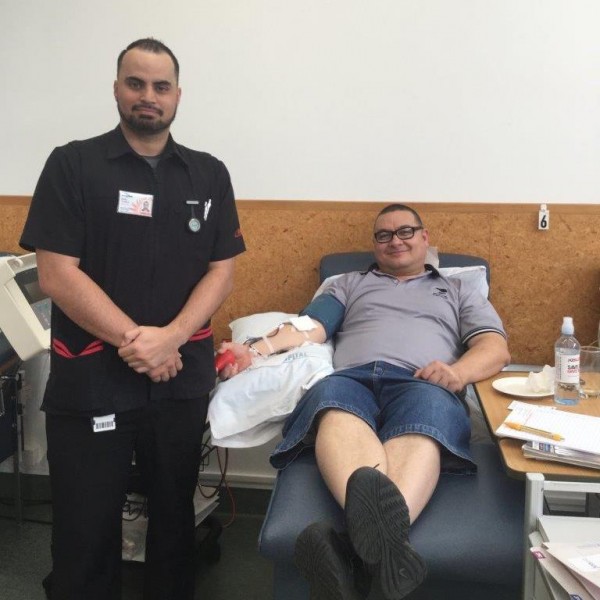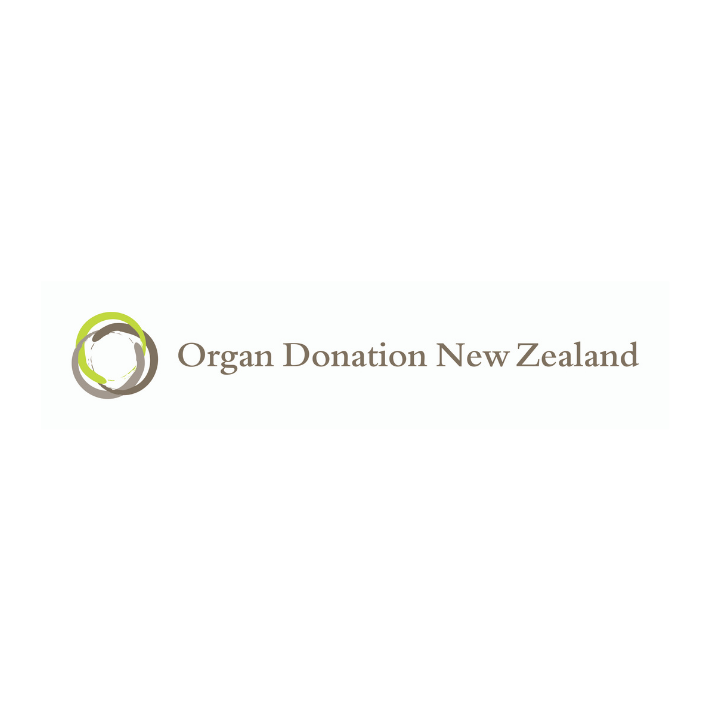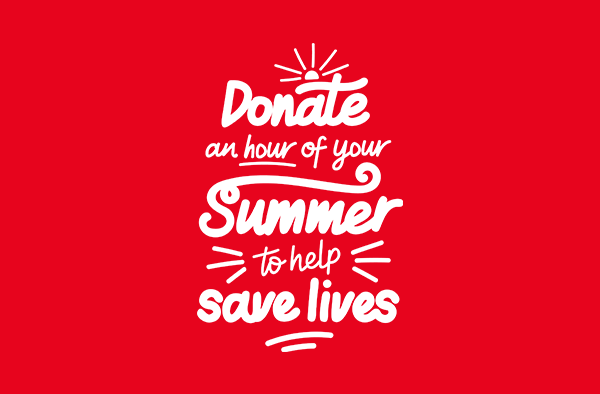News
Donating blood is Koro’s service to his community

Koro Amai has big ambitions. After 25 years of donating blood and plasma, the father of seven is only halfway towards his goal of becoming one of New Zealand’s highest ever donors, and he’s encouraging anyone he meets, including his whānau and friends to do their bit to help too.
“I was first interested in donating way back in 1994,” says Koro, who works as a kaiwhakamānawa whānau tutor at the Waikato Institute of Technology.
“I donated whole blood a couple of times, and loved it, then I was introduced to plasma. After I learnt that plasma can be used for more products than whole blood and I could donate more frequently I signed up and have donated twice a month ever since!”
Plasma is collected through an apheresis machine, and it works a little bit differently than whole blood. The process takes a bit longer, and because it returns red cells back to the body, donors can donate every two weeks instead of every three to four months.
Earlier this year Koro reached the significant milestone of 250 donations. His goal is to reach 500 in total. He’s even done the maths and knows how long it’s going to take.
“I can do it, I want to do it, I’m healthy. I’m 51 now, and if my health goes well and I’m able to donate for another 20 years, I may even make it to more than 500 if I’m lucky”.
Active plasma donors are eligible to donate until their 71st birthday, and could continue to 76 years old at the discretion of a medical officer. First-time plasma donors can start donating up to their 61st birthday.
“It would be incredible to exceed my goal, but these are just little goals I set myself, and while it’s good to set them, I know this isn’t about me. I just want to help as many people as I can.”
Koro knows just how important blood and plasma donation is, he’s seen it first-hand.
“My wife Angie required a plasma product called Anti-D Immunoglobulin, after giving birth to all of our seven children”, he recalls. “she has a negative RhD blood type and I have positive.”
Anti-D is an antibody that binds to red blood cells that carry the RhD blood group. Anti-D is made when a mother and baby have incompatible RhD blood types. When Anti-D is present in a pregnant woman's blood, it will be able to cross the placenta and enter the baby’s blood, causing the baby to start destroying its own red blood cells.
After pregnancy, and occasionally during pregnancy, around 9% of New Zealand women will need Anti-D Immunoglobulin injections to keep their baby healthy. Every year 7,000 doses of Anti-D are given to RhD negative women in New Zealand.
Three of Koro and Angie’s children have now grown up to become blood donors themselves. Their 16-year-old twin daughters first donated whole blood when they became eligible this year on their birthday, at the same time as Koro for his 240th contribution.
“When the girls went in, I told them their nan used to be a donor too, three generations! She’s 80 now so past the donation eligibility.”
After more than two decades of donating, Koro has spent more than 188 hours in the donor beds, and in all that time he’s noticed there aren’t many people like him who are donating.
“Being of Māori decent, I don’t see many Māori people in the donor rooms. I know there are Māori who rely on donated blood and blood product, it’s there for everybody, but it would be great to see all groups out there on the donor floor.
“I urge more Maōri to at least come in and talk with a nurse about it.”
Each time Koro donates, he posts on his Facebook page, encouraging anyone he knows to head down to their closest donor centre and do their bit.
“I think I’ve had a couple of friends go in after seeing my posts. Main reason apart from I like doing it, and it helps others, is that I would hate to see one of my whānau, a neighbour, a friend, have their quality of life jeopardised because not having enough supply. It’s about them. If I can help people, I will do it, and you should too.”
To find out more about how you can donate blood or plasma, click here, or call 0800 GIVE BLOOD
Published: 2020-11-10



